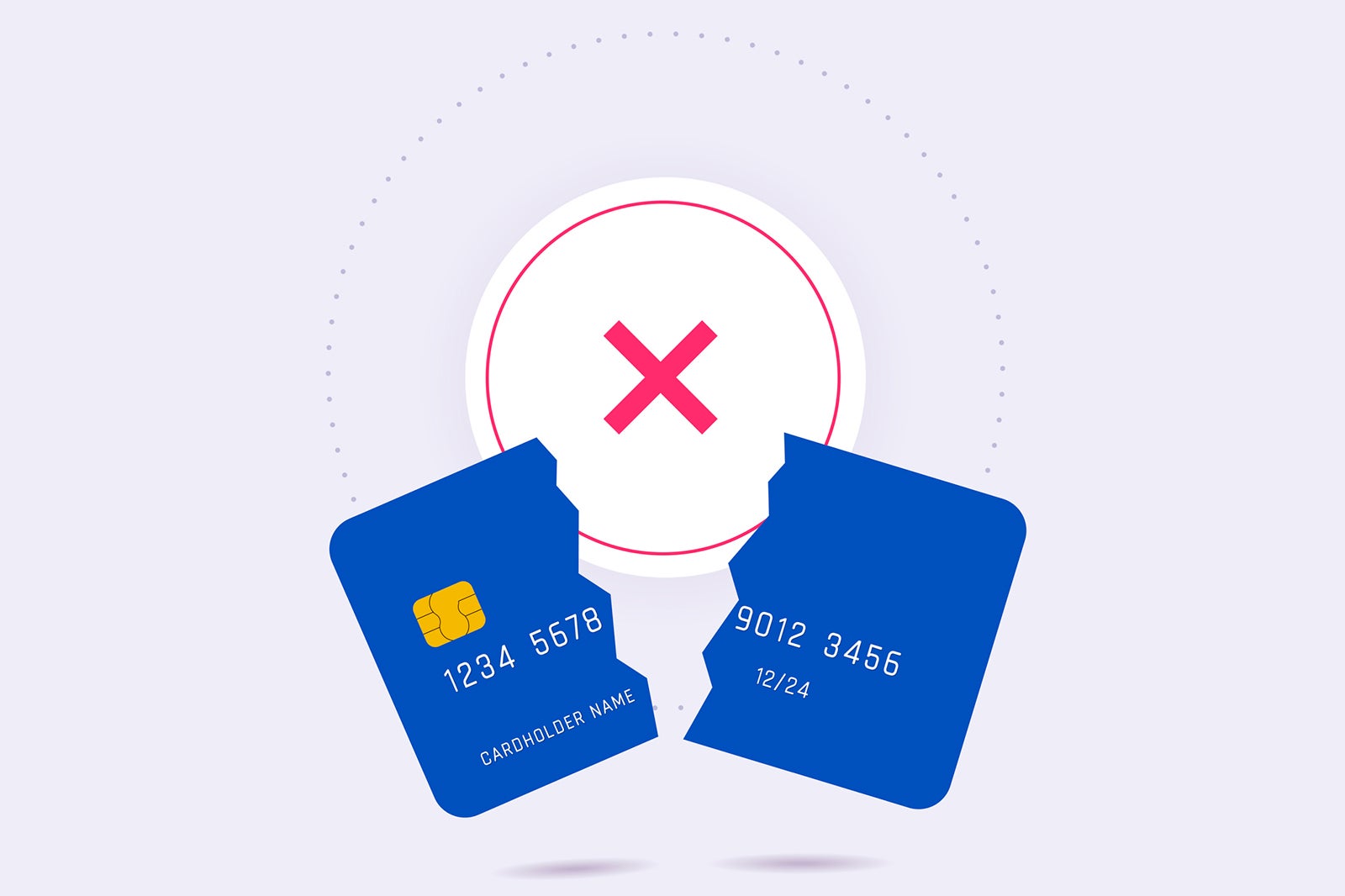HOSTED BY: 1 AIR TRAVEL
Editor’s note: This post has been updated with new information.
Deciding whether to cancel a credit card isn’t a quick and easy decision — or at least it shouldn’t be. It’s best to weigh several factors to ensure that closing your account doesn’t have unintended consequences.
Knowing when and how to cancel a credit card (and when to keep an account open) is critical to your long-term success as a points and miles enthusiast. This knowledge is just as necessary as learning how to take advantage of attractive new credit card offers.
While it’s usually best to leave your credit cards open, if you have a reason for canceling a credit card (such as closing a joint account during a divorce or setting yourself up to potentially re-earn a sign-up bonus later), the process doesn’t have to be complicated. This guide outlines everything you need to know about canceling a credit card.
Does canceling a credit card hurt your credit?
Before you cancel any credit card, it’s essential to ask the following questions:
Will closing this card raise your credit utilization rate?
Credit utilization describes the relationship between your credit card limits and balances. If closing a card causes your overall credit utilization to climb, your credit scores might decline. Lower credit scores could make it harder to qualify for new accounts and might lead to higher interest rates on new credit in the future.
Has the account been open for more than one year?
Our advice is to never close your credit card before the one-year mark. Card issuers aren’t fans of people who open credit cards to score a sign-up bonus and don’t become valuable customers. American Express, in particular, may claw back your bonus or even close your account if it thinks you’re trying to game the system.
What is the impact on your credit score?
Closing a credit card won’t immediately affect your length of credit history (worth 15% of your FICO Score) by lowering your average credit age. Even after you close a positive account, it may remain on your credit for up to 10 years. Yet closing a credit card could raise your overall credit utilization rate and possibly lower your credit scores.

SOLSTOCK/GETTY IMAGES
To mitigate potential credit score damage, you should make a plan to keep your credit utilization rate low even after you close the account. One option is to pay off all your credit cards before closing an account, especially the one you’re closing. To ensure the $0 balance is reported to the credit bureaus, paying early — a few days before your statement closing date is best. Of course, if your overall credit utilization is already 0%, closing a card won’t change that figure.
Another option is to open another credit card (if you plan to do so) before you close your other account. Let’s say you close a credit card with a $15,000 limit. If you open a new account and receive the same or higher limit, your utilization shouldn’t be affected negatively. However, you will have a new hard inquiry, and the new account itself may lower your average credit age. These actions might result in lower credit scores, at least temporarily, so weigh these factors in making your decision.
Related: How to check your credit score for absolutely free
What happens when you close a credit card?
Canceling a credit card has implications and long-term consequences that require consideration. When you close a credit card, you effectively end your customer relationship unless you hold other cards with the same issuer.

TMN-ART/GETTY IMAGES
While it’s not a bad thing, this can have implications on your credit report. Your overall line of credit across all credit cards is reduced, which increases your credit utilization, a major factor in determining a good credit score. If you decide to cancel a credit card that was your first card or one of your oldest, this can also decrease the average age of your overall accounts and affect your credit score.
Canceling a credit card also entails giving up access to perks and benefits you would receive, such as lounge access at airports, a checked baggage allowance or statement credits for streaming services.
How to cancel a credit card
After all these considerations, if you’re still intent on canceling a credit card, here are all the steps you’ll need to take.
Plan your exit strategy
If you’ve gone through the list above and you still want to cancel your credit card, it’s time to plan your exit strategy. How to cancel a credit card is a systematic practice. You should remember two primary goals during this process — protecting your credit score and your rewards. You don’t want to see your credit score plummet by just canceling cards, and you don’t want to lose any points or miles you may have earned.
Protect your rewards
Once you close a credit card, any rewards you leave sitting in that account could disappear. You may be able to redeem those points you’ve earned first for travel and more. If you’re not ready to spend the points yet, you can transfer them to an airline, hotel partner, or family member’s account and buy gift cards or redeem them for cash or statement credits. But be warned — you won’t get the most valuable redemptions with cash, statement credits or gift card purchases, only hitting a rate of 1 cent per point.

D3SIGN/GETTY IMAGES
Pay the balance
If you’re a regular TPG reader, you know all about our 10 commandments for travel rewards credit cards. As such, this particular step should be easy. Since you’ve already been paying off your monthly balances, you get the maximum benefit from the points and miles you earn. Double-check to ensure your payment has been processed before canceling a card. Also, don’t forget to use any credits on your card, such as the up to $200 annual airline fee statement credit offered by The Platinum Card® from American Express (enrollment required).
Cancel recurring payments
Once you have decided to cancel a credit card, make sure to remove the credit card from any recurring bill payments. This is as simple as visiting the company’s website or calling them to update your payment method.
Contact customer service
If you’re 100% certain you want to cancel a credit card, you’re ready to close your account officially. It’s time to pick up the phone and call your card issuer. If your bank offers a “secure message center,” there’s a chance you may be able to close your account online. You can send a message asking to close a specific account, and your card issuer might handle the process electronically without you ever having to pick up the phone.

SHUTTERSTOCK
TPG director of content Summer Hull shares the following story about how she saved some time and canceled a credit card online:
I used the Citi Secure Message Center to close a card with less than 30 seconds of time invested on my end.
First, I logged into my Citi online accountThen, I went into the account I wished to closeNext, I selected the Message CenterI wrote a brief message asking to cancel my credit card ending in number XXXXThe next day, the account was closed, and I received a message back to that effect.
Summer explains that the online cancellation method worked well for her because she didn’t want any retention offers and did not want to downgrade to a different account.
Dispose of your old card
Once you have successfully canceled your credit card, it’s a smart practice to dispose of it properly to ensure no one will try to use it after it’s been closed. If your card is made of plastic, as most cards are, then it’s a smart practice to cut up the card before throwing it in the trash. If you have a metal card like the Chase Sapphire Preferred Card or American Express® Gold Card, then request a prepaid envelope to be sent to you and mail back the canceled credit card for proper disposal.
Check your credit report again
Once the card is closed, rechecking your credit report is always a good idea. By law, you are entitled to a full credit report from the three major credit bureaus — Experian, Equifax, and TransUnion — once a week for free. To get your complete reports, head on over to the annual credit report site and click the “Request your free credit reports” button.
Can you reopen a closed credit card?
Reopening a closed credit card varies by issuer, and the best way to know is to call the issuer. It’s important to note that credit card companies are not required to open a closed account, so be prepared to hear “no.”
Upon calling the customer service line, provide the issuer with your previous account number or other identifiers so they may locate your closed account. If you’ve changed your mind after closing the credit card, let them know you’ve changed your mind and explain why you wish to reopen it.

JOSE LUIS PELAEZ INC/GETTY IMAGES
You can always apply for the same card as a new applicant. It’s important to note that most issuers’ terms and conditions contain language for welcome offer eligibility, so if not enough time has passed since the closure of your last account, you would be ineligible, not to mention it would also result in a hard inquiry on your credit report.
Should I cancel my credit card?
Now that we have covered how to cancel a credit card and its implications, the question is, should you cancel your credit card, or are there any alternatives that could benefit you?

THE POINTS GUY
Is there an annual fee on the account?
If not, there’s usually little to no benefit to closing the account. On the other hand, keeping the card open might be suitable for your credit scores in the long run, especially if you manage the account responsibly.
Can you downgrade to a no-annual-fee option?
If you’re closing a credit card because you’re not getting enough value to offset the annual fee, consider asking the card issuer to downgrade your account. You might protect your credit by downgrading your card to a different product — such as from the Capital One Venture Rewards Credit Card down to the Capital One VentureOne Rewards Credit Card with no annual fee (see rates and fees). But know you’ll be taking a hit when it comes to card perks.
Will the card issuer extend to you a retention offer?
Card issuers offer sign-up bonuses to attract new customers. Those same issuers may also be willing to extend a retention offer if you’re considering canceling a card due to its high annual fee. If a retention offer is available, keeping a card you intended to close might make sense. A retention offer can include waiving the annual fee or a spending requirement to net you bonus points and miles.
Bottom line
Most times, canceling a card isn’t a good idea because of the credit score hit, especially if it’s one you’ve had for a long time. That card can remain on your credit report for up to 10 years, and you’ll also take a hit on your credit score. However, by following the steps above, you can mitigate any effects on your credit score and report.
Title: How to cancel a credit card
Sourced From: thepointsguy.com/news/how-cancel-credit-card/
Published Date: Tue, 26 Sep 2023 16:00:20 +0000
No comments:
Post a Comment